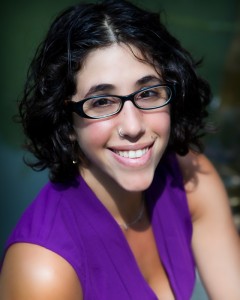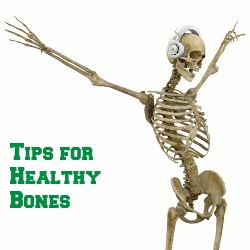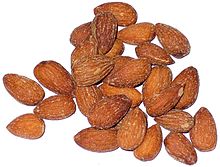 from being drained by pain – gastrointestinal, joint, headache, or emotional – to channeling their fully restored energy into creating the life they want. Mahalia’s clients get pregnant, get energized, overcome anxiety and depression, leave digestive health concerns behind. From allergies to PMS, celiac to fatigue, Dr Mahalia Freed uses individually tailored natural medicine and her clients feel better.
Based in Toronto, Mahalia provides care & support to clients around the world via phone, email and skype, as well as offering in-person medical care at her office. Alongside her private practice, Mahalia lectures in Women’s Health at the Canadian College of Naturopathic Medicine and informs diverse public and corporate audiences on topics ranging from Stress and Digestion to Inflammation and Food Allergies to Cancer Prevention. For more information and some clients’ stories, see www.drmahaliafreed.com.
from being drained by pain – gastrointestinal, joint, headache, or emotional – to channeling their fully restored energy into creating the life they want. Mahalia’s clients get pregnant, get energized, overcome anxiety and depression, leave digestive health concerns behind. From allergies to PMS, celiac to fatigue, Dr Mahalia Freed uses individually tailored natural medicine and her clients feel better.
Based in Toronto, Mahalia provides care & support to clients around the world via phone, email and skype, as well as offering in-person medical care at her office. Alongside her private practice, Mahalia lectures in Women’s Health at the Canadian College of Naturopathic Medicine and informs diverse public and corporate audiences on topics ranging from Stress and Digestion to Inflammation and Food Allergies to Cancer Prevention. For more information and some clients’ stories, see www.drmahaliafreed.com.
 With one huge chunk taken out of their dietary options, many people newly diagnosed as celiac worry not only about how to get through social occasions, but also about how to get all the nutrients they need. As the inflammation and immune reactions of celiac interfere with the gut’s ability to absorb nutrients, it is common for people to be deficient in one or more nutrients by the time they finally receive a diagnosis. Thus, low bone density (osteoporosis and its precursor, osteopenia) is a common secondary finding in the celiac-population in my practice.
With one huge chunk taken out of their dietary options, many people newly diagnosed as celiac worry not only about how to get through social occasions, but also about how to get all the nutrients they need. As the inflammation and immune reactions of celiac interfere with the gut’s ability to absorb nutrients, it is common for people to be deficient in one or more nutrients by the time they finally receive a diagnosis. Thus, low bone density (osteoporosis and its precursor, osteopenia) is a common secondary finding in the celiac-population in my practice.
So, without further ado, I would like to address the question,
“What can I do to keep my bones healthy?”
I regularly encounter the myth that we need dairy products for healthy bones. My clients tell me they don’t want to give up dairy, as osteoporosis runs in their family. Or, they tell me, “I don’t want to do that to my kids”.
Let me set the record straight: You don’t need milk products for healthy bones!
Adults don’t need dairy, kids don’t need dairy.
But, don’t I need calcium? Don’t my kids need calcium?
Yup. And many other minerals.
You don’t need milk products to get calcium!
As stated by researchers in a 2013 editorial in JAMA Paediatrics, “Humans have no nutritional requirement for animal milk, an evolutionarily recent addition to diet.”
But I thought I needed milk products for healthy bones!
“Throughout the world, bone fracture rates tend to be lower in countries that do not consume milk compared with those that do. Moreover, milk consumption does not protect against fracture in adults, according to a recent meta-analysis” (Ludwig D and Willett W. 2013).
Furthermore, “Milk consumption increases serum concentrations of insulin-like growth factor-1, an anabolic hormone linked to prostate and other cancers” (ibid).
Why increase cancer risk? Or the risk of type 1 diabetes, also associated with dairy intake?
Ludwig and Willett conclude: “For those with high quality diets (including green leafy vegetables, legumes, nuts, seeds, and adequate protein), the nutritional benefits of high milk consumption may not outweigh the negative consequences.”
Milk, it doesn’t necessarily do your body good. You don’t need it, and neither do your kids.
Okay, so…what DOES support healthy bones?
Note:
Certain prescription medications can cause bone loss, or decrease calcium absorption. This group includes corticosteroids like prednisone or Flovent (bone loss), and proton pump inhibitors, a class of medications for decreasing stomach acid, like Losec or Nexxium (decreased absorption). It also includes certain forms of birth control, such as Depo Provera. If you are taking such a medication, talk to your health care team about how to protect your bones.
– Fortified soy beverage, 1 cup: 300 mg
– Tofu, firm, made with calcium sulfate, ½ cup: 258 mg
– White beans, cooked, 1 cup: 202 mg
– Chickpeas (Garbanzo Beans), cooked, 1 cup: 80.4 mg
– Salmon, canned with bones, ½ cup: 181 mg
– Sardines, canned with bones, 1 (92g) can: 251 mg
– Sesame Seeds, paste (tahini), 1 tbsp: 63.9 mg
– Figs, dried, 5 medium: 90 mg
– Bok choy, cooked, ½ cup: 84 mg
– Kale, cooked, 1 cup: 93.6 mg
– Collards, cooked, 1 cup: 266 mg
– Rapini, boiled, ½ cup: 78 mg
– Okra, boiled, ½ cup: 65 mg
References:
Canadian Nutrient Files,
USDA nutrient database for standards records
(via www.nutrititiondata.com and
Nutrition Almanac by John Kirshman & Nutrition Search, Inc. McGraw-Hill, 2007.)
Thanks Dr. Freed!
Follow Dr. Mahalia Freed to learn more about
holistic health & the services she provides as a Naturopathic doctor
Mindy
November 25, 2013 at 2:56 pmThank you. My daughter was just diagnosed with lactose intolerance.
Jennifer
November 18, 2013 at 8:32 pmThanks for providing some good sources of calcium other than dairy!!!! I’m lactose intolerant.
Cynthia
November 6, 2013 at 11:58 amGreat article. I was just diagnosed with lactose intolerance so I’ve wanted to learn of other sources of calcium. I found your article very helpful, thank you.
Paula
November 5, 2013 at 9:45 pmThank you Dr. Freed for the informative article. Now I know why my sons’ pediatrician recently said “limit dairy … they can get calcium from other sources!”